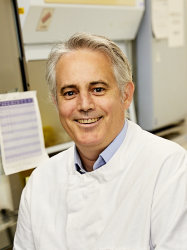BibTex format
@article{tutt:2018:10.1038/s41591-018-0009-7,
author = {tutt, A and tovey, H and Cheang, MCU and Kernaghan, S and Kilburn, L and Gazinska, P and Owen, J and Abraham, J and Barrett, S and Barrett-Lee, P and Brown, R and Chan, S and Dowsett, M and Flanagan, JM and Fox, L and Grigoriadis, A and Gutin, A and Harper-Wynne, C and Hatton, MQ and Hoadley, KA and Parikh, J and Parker, P and Perou, CM and Roylance, R and Shah, V and Shaw, A and Smith, IE and Timms, KM and Wardley, AM and Wilson, G and Gillett, C and Lanchbury, JS and Ashworth, A and Rahman, N and Harries, M and Ellis, P and Pinder, SE and Bliss, JM},
doi = {10.1038/s41591-018-0009-7},
journal = {Nature Medicine},
pages = {628--637},
title = {Carboplatin in BRCA1/2-mutated and triple-negative breast cancer BRCAness subgroups: the TNT Trial},
url = {http://dx.doi.org/10.1038/s41591-018-0009-7},
volume = {24},
year = {2018}
}

